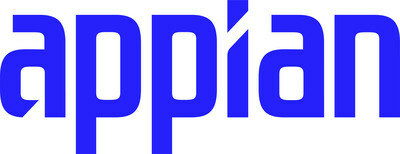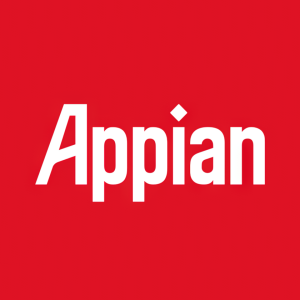Appian Will Seek to Reinstate Judgment Against Pegasystems, Inc. In Virginia Supreme Court
Rhea-AI Summary
Appian (Nasdaq: APPN) announces its intention to appeal the decision by the Court of Appeals of Virginia and seek reinstatement of its judgment against Pegasystems Inc. for willful and malicious trade secret misappropriation. The appeal follows a jury verdict based on extensive testimony and evidence demonstrating Pegasystems' use of a "spy" to analyze Appian's software and improve its own product. The Court of Appeals upheld that Appian presented sufficient evidence of its trade secrets and their protection. Appian believes the Court's ruling on burden shifting for damages isolates Virginia from other states' views on trade secret protection. The company remains confident in the evidence of misappropriation and its right to corresponding damages.
Positive
- Appian's appeal aims to reinstate a significant judgment against a competitor
- Court of Appeals upheld Appian's evidence of trade secrets and their protection
- Pegasystems' violation of the Virginia Computer Crimes Act is confirmed and final
Negative
- Court of Appeals reversed the original judgment, potentially delaying or reducing damages
- Possibility of a new trial, which could extend the legal process and associated costs
- Uncertainty in the outcome of the appeal to the Supreme Court of Virginia
Insights
The Court of Appeals of Virginia's decision to reverse the jury verdict in Appian's favor against Pegasystems represents a significant legal development in this high-stakes trade secret misappropriation case. Several key points warrant attention:
- The court upheld that Appian presented sufficient evidence of its trade secrets and their protection, which is important for maintaining a trade secret claim.
- The Virginia Computer Crimes Act violation by Pegasystems stands unchallenged, providing Appian with a confirmed legal victory on that front.
- The reversal hinges on evidentiary issues and the burden of proof for damages, rather than the fundamental merits of the misappropriation claim.
- The court's stance on burden-shifting for damages appears to diverge from common practice in trade secret cases, potentially setting a precedent that could impact future litigation in Virginia.
Appian's decision to appeal to the Supreme Court of Virginia is a strategic move to challenge what they perceive as misapplication of legal precedents. The potential
From a legal standpoint, this case highlights the complexities in proving trade secret misappropriation and quantifying damages. The final outcome could have far-reaching implications for how trade secret cases are litigated in Virginia and potentially influence other jurisdictions.
This ongoing legal battle between Appian and Pegasystems has significant financial implications for both companies. Key financial considerations include:
- The potential
$3 billion in damages claimed by Appian represents a substantial sum that could materially impact Pegasystems' financial position if awarded. - The legal costs associated with a prolonged court battle, including the appeal to the Supreme Court of Virginia and a possible new trial, will likely be significant for both companies.
- Investor confidence in both companies may be affected by the uncertainty surrounding the case's outcome, potentially influencing stock prices and market valuations.
- The allegations of trade secret misappropriation, if proven, could have long-term implications for Pegasystems' competitive position and future revenue streams.
From a financial perspective, the case introduces significant uncertainty into the valuation models for both companies. Investors should closely monitor the legal proceedings and any potential impact on the companies' financial statements, particularly in terms of legal provisions and contingent liabilities.
While the immediate financial impact may be to legal expenses, the long-term consequences of the final verdict could be substantial. A ruling in Appian's favor could provide a significant boost to its balance sheet, while a loss for Pegasystems could strain its financial resources and potentially affect its market position in the competitive software industry.
The allegations in this case highlight critical issues in the software industry, particularly regarding intellectual property protection and competitive practices. Several technical aspects are noteworthy:
- The alleged misappropriation involves Appian's development environment, suggesting that core technological innovations may have been compromised.
- The claim that Pegasystems' platform would have become obsolete without the alleged misappropriation underscores the potential significance of the technology in question.
- The use of a "spy" to gain access to Appian's software raises concerns about cybersecurity and the protection of proprietary development environments in the tech industry.
- The case emphasizes the importance of robust measures to protect trade secrets in software development, especially in competitive markets.
From a technological standpoint, this case underscores the razor-thin margins between innovation and imitation in the software industry. It highlights the critical need for companies to not only innovate but also to vigorously protect their intellectual property.
The outcome of this case could influence how software companies approach product development, competitive analysis and intellectual property protection. It may lead to more stringent security measures in development environments and potentially slower innovation cycles as companies become more cautious about potential legal risks associated with competitive analysis and feature development.
In its opinion, the Court of Appeals of
Despite Pega's claims that there were no "trade secrets" in the case, the Court of Appeals expressly held that Appian presented sufficient evidence to the jury of its trade secrets and that Appian had used reasonable measures to protect those trade secrets. The
The ruling from the three-judge panel of the Court of Appeals sending the case back to the trial court related to the exclusion of evidence, as well as the burdens of proof related to damages in a trade secret case once misappropriation is proven. The Court's ruling that Pegasystems, which has all the evidence related to its own sales, does not have to show that its sales were unrelated to its unlawful misappropriation isolates
Appian also believes the Court of Appeals' reversal of several evidentiary rulings by the trial court was the result of its failure to give appropriate regard to the full record and the trial court's discretion to conduct a trial over seven weeks involving significant misconduct by Pegasystems. Those rulings were well within the trial judge's authority and, with respect to several of the rulings, invited by Pega itself.
"We will appeal the ruling to the Supreme Court of
During the seven-week trial, Appian presented evidence that Pegasystems hired an employee of a government contractor, to provide Pegasystems with access to Appian's software as a part of an effort to learn how to better compete against Appian. In hiring the contractor, Pegasystems instructed its third-party contracting service to recruit someone who was not "loyal" to Appian. Appian put forward evidence that the contractor passed trade secret information to Pegasystems to enable its employees to build competitive features and train Pegasystems' sales team to better compete against Appian. At one point in the case Alan Trefler, Pegasystems' Founder and CEO, admitted that it was "inappropriate'' for Pegasystems employees to have hired the contractor, and that the contractor "apparently did things for which he was not entitled."
The contractor, referred to as a "spy" internally at Pegasystems, helped Pegasystems generate dozens of video recordings of the Appian development environment for use by Pegasystems in compiling competitive materials and evaluating improvements to its platform. Appian also submitted evidence that Pegasystems' product development team reviewed the materials provided by the contractor and changed the course of Pegasystems' product engineering to take advantage of the Appian technology they saw. Appian's expert witness testified that Pegasystems's software platform would have become obsolete if Pegasystems had not misappropriated Appian's trade secrets.
If a new trial is ultimately ordered, Appian will seek the full amount of its damages claim presented in the original trial, which exceeds
About Appian
Appian is a software company that automates business processes. The Appian AI Process Platform includes everything you need to design, automate, and optimize even the most complex processes, from start to finish. The world's most innovative organizations trust Appian to improve their workflows, unify data, and optimize operations—resulting in better growth and superior customer experiences. For more information, visit appian.com. [Nasdaq: APPN]
Follow Appian: LinkedIn, X (Twitter).
Forward-Looking Statements
This press release includes forward-looking statements. All statements contained in this press release other than statements of historical facts, including statements regarding Appian's ability to collect on the judgment and to receive attorney's fees, the outcome of any appeal, and the timing of such matters, are forward-looking statements. All aspects of the appeals court decision could be subject to further appeal by Appian or Pegasystems. Appian cannot predict the outcome of any appeals or the time it will take to resolve them. The words "anticipate," "believe," "continue," "estimate," "expect," "intend," "may," "will," and similar expressions are intended to identify forward-looking statements. These forward-looking statements are subject to a number of risks and uncertainties, including the risks and uncertainties set forth in the "Risk Factors" section of Appian's Annual Report on Form 10-K for the year ended December 31, 2023 filed with the Securities and Exchange Commission on February 15, 2024 and other reports that Appian has filed with the Securities and Exchange Commission. Appian is under no duty to update any of these forward-looking statements after the date of this press release to conform these statements to actual results or revised expectations, except as required by law.
![]() View original content to download multimedia:https://www.prnewswire.com/news-releases/appian-will-seek-to-reinstate-judgment-against-pegasystems-inc-in-virginia-supreme-court-302210488.html
View original content to download multimedia:https://www.prnewswire.com/news-releases/appian-will-seek-to-reinstate-judgment-against-pegasystems-inc-in-virginia-supreme-court-302210488.html
SOURCE Appian









